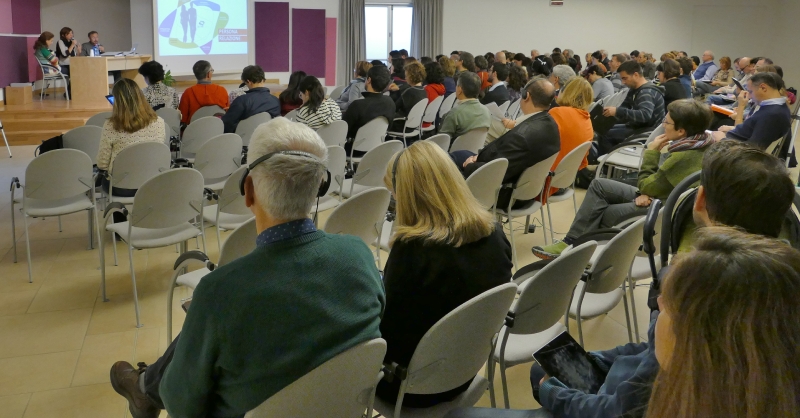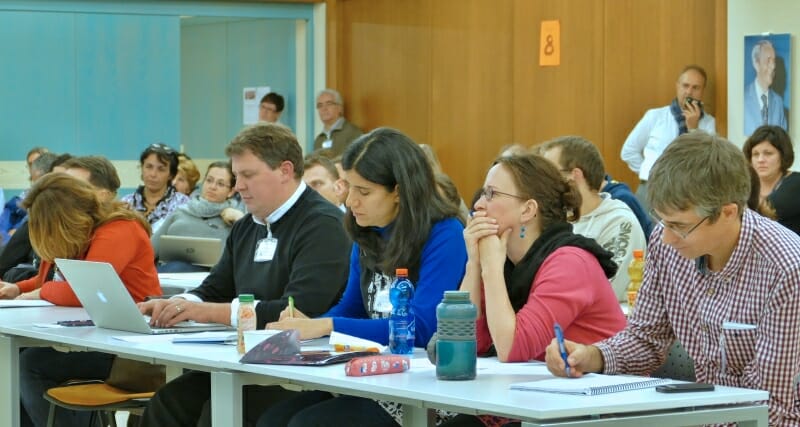Turkey. A Wind of Unity on Heybeli Island, Itstanbul.
November 25th, 9 am. A light breeze blows over Heybeli Island, Halki, a small oasis of peace in the Marmara Sea near Istanbul. On the top of the island’s Hill of Hope stands the Orthodox Monastery Aya Triada (Most Holy Trinity) that is hosting this year’s 34th Meeting of Bishops from different Churches, promoted by the Focolare Movement. Founded in the 9th century, the Monastery was destroyed several times by earthquake and fire. The present construction from the 19th century is the site of a prestigious Greek Orthodox Theological Academy that contains a library with valuable ancient manuscripts and a total of 120,000 books. It was quite an unusual scene at the Monastery’s entrance: 35 bishops from 16 Churches and 19 countries in fraternal dialogue. The president and co-president of the Focolare Movement were also among them along with other members of the meeting. Ecumenical Patriarch Bartholomew I comes to the door: “I am happy at being together with you,” he says with simplicity and leads them into the Monastery. He would present the opening address of the Meeting: “Together for the common cause: the unity of the disciples of Christ in the diversity of gifts.”
Cardinal Francis Kriengsak from Bangkok greets the Patriarch on behalf of all and thanks him for having wished to host this year’s Meeting. “Here we are in the heart of Orthodoxy with its ancient Churches and countless martyrs” he says as he introduces the members of the Meeting. The Anglican Primate, Archbishop of Canterbury, Justin Welby sent a message to the gathering: “I continue to consider the Focolare Movement as one of the beacons of hope in our divided world. With its commitment to unity through mutual respect and dialogue, it offers a characteristic path towards reconciliation beyond differences and enmities.” Bartholomew I recalls his recent visit to Loppiano for the honorary doctorate that was conferred upon him by Sophia University Institute. “An encounter,” he says “in which we experienced sincere love, without any ifs or buts. Then he speaks of the Meeting. “How can we manage to harmonise the diversity of charisms of our Churches today with the unity of the disciples of Christ and be typos (model) of unity for the world?” he asks. “Too many times the differences appear to be foundational elements and not charism and this is what we savour every day in the face of the difficulties which the human race lives out as exclusiveness and conflict”
On a global landscape where discouragement, uncertainty and indifference prevail, especially in the recent days, The Patriarch looked to hope. As Christians, he emphasised: “we have to quickly recover the sense of unity as a recapitulation of the gifts [charisms],” the “wealth of the differences. . . to be offered and, in turn, received.” “The unity of the world, the respect for God’s Creation the gift of his love,” he explained, “will be given by the ability to welcome the experience of the other as an enrichment for all, as a path of unity, of respect and of reciprocity,” “free from every type of ideological, political and economic conditioning.” “I arrived here even more happy because I found you waiting for me. . . like a family,” said the Patriarch as he posed a challenge to the bishops and people entrusted to them: if as Christians we will have this experience, “we will truly be ‘salt of the earth’ and the world will begin a profound metamorphosis.” Compiled by: Adriana Avellaneda



